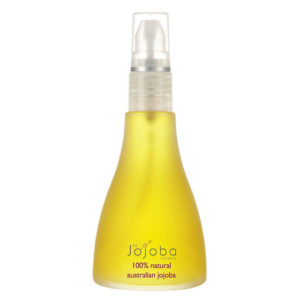The first line of Defence: Skin Health
Although there is no secret to the fact that we are all covered in skin, it is possibly the most underappreciated organ in the body. It also happens to be the largest organ too. Due to the nature of our lifestyle and our environment, skin is under constant pounding day in day out. However, damage to the skin is literally more than skin deep. To date there are over 3,000 potential skin disorders. So, what are some of the biggest functions of the skin? What are signs of good skin health? What can be done to improve skin health?
Skin is very important in the maintenance of life and health. This super organ consists of 3 layers. It’s an airtight, water tight and flexible barrier between the inside and outside world and has 8 primary functions:
- Similar to the weatherboard protecting the inside of the house and keeping its inhabitants safe, skin keeps the internal organs warm, safe and protected from the big bad world. Skin does a great job of protecting against water and blood loss, warding off physical and chemical injury and keeping bugs at bay.
- This impenetrable barrier also protects against allergens, toxins and other poisons or carcinogens in the environment that would be otherwise toxic to our internal system. Certain cells particularly in the skin act as soldiers, attacking toxins and bacteria. They are literally a first line of defence as part of our immune system.
- Skin contains a bunch of heat sensing cells. These help with temperature regulation to either produce the sweat response and cool us down or insulate the body via the tiny little hairs.
- As the environment continues to shift and change, the ozone layer is further and further damaged making the skins ability to produce Melanin even more important. This prevents some of the damaging effects of UV radiation.
- Possibly it’s why I became a chiropractor however, skin provides possibly my favourite sense of all time. Touch. The ability to interact and feel our physical surroundings while performing fine and gross motor skills would be impossible without skin.

- A still somewhat misunderstood yet critically important Vitamin, Vitamin D is produced by the skin. Sun exposure is necessary to trigger its production. Some studies out there say that we need 30 minutes/day of full body sun exposure. Luckily enough for us, in Newcastle we live close enough to the equator to get the necessary amount of UV penetration. This triggers Vitamin D production even in the depths of winter. In areas further south like Melbourne, the aren’t so lucky. The latitude is too great that the angle of the sun in winter is too weak failing to trigger Vitamin D production. Vitamin D plays an important role in preventing osteoporosis, normalising thyroid activity, slowing cancer growth, minimising heart disease, decreasing the risk of obesity and other neurological conditions. It’s imperative to get full sun exposure throughout the year. In summer the early or late periods of the day are best to avoid skin damage. However, in winter, get out there even in the middle of the day. International recommendations are 1000IUD of vitamin D/day. In winter due to how much we cover up and how little our skin is exposed to the sun, I personally take 4000IUD and I take a liquid form. Some friends and experts I know, especially those in the cooler climates, take as much as 10000IUD in the colder months.
- Wound healing is an obvious one when it comes to skin function however, it is super important. The body’s ability to recognise damage to the skin, trigger the appropriate contraction of the skin while at the same time alter or restrict blood flow to the area is genius. Better than any band aid, the skin knows how to naturally heal and contract to minimise blood loss preventing the loss of many vital substances.
- Beauty is only skin deep. It might sound corny, but as a society more often than we do judge a book by its cover. We gauge someone as healthy or attractive just by the appearance of their skin. Skin quality certainly contributes albeit somewhat incorrectly to the perception of health, wellness, youth and beauty.
What are some signs of good skin health?
- Smoothness. The old saying as smooth as a baby’s…… bumps, growths, cuts and rashes generally stick out or protrude from the skin. Many of the potential skin disorders previously mentioned change the layout of skin giving it a roughened appearance.

- Even tone. Similar to a fine paint job on a car. An even coating of paint or an even colouring of skin is a great sign of heath. It indicates normal blood flow throughout and as such normal chemical function below too. Like the car with rusted parts, blotchy or irritated skin isn’t normally a product of health.
- Hydration. Having dry or flaky skin is often attributed to dehydration. Adequate hydration is important for every body organ and its function, not just the skin. If feeling dry even on the skin, maybe it’s time to up the water intake.
- Elastic. Skin needs to be able to stretch. A lot of this is thanks to collagen. It’s the elasticity of skin that is vital as it enhances the speed of recovery and improves wound healing.
Things to do to improve skin health?
- Eat plenty of fresh fruit and vegetables. Fruits and Vegetables are naturally high in antioxidants. Chemicals and toxins in highly processed foods are oxidising or damaging to the skin thanks in part to the large production of free radicals. Likewise excess UV light is also oxidising or damaging. Antioxidant consumption is one of the best ways to mitigate the effects of skin damage whether from sun damage or exposure to toxic environments. Similarly, a diet high in sugar or
 processed foods can also act as a toxic substance to the body. Changing to a diet free from refined and processed foods, higher in natural good fats & proteins means a higher natural level of antioxidants, meaning less free radicals and less damage to the skin. Incidentally, as I’ve aged even with long hours in the sun with endurance sport, I am less likely to get burnt by the sun now on a 6 hour bike ride, than I was in my 20’s playing a 2hr game of baseball.
processed foods can also act as a toxic substance to the body. Changing to a diet free from refined and processed foods, higher in natural good fats & proteins means a higher natural level of antioxidants, meaning less free radicals and less damage to the skin. Incidentally, as I’ve aged even with long hours in the sun with endurance sport, I am less likely to get burnt by the sun now on a 6 hour bike ride, than I was in my 20’s playing a 2hr game of baseball. - Hydrate. As already mentioned, hydration is a key sign of good skin health. If you feel you are lacking in this area, this could be the easiest fix of them all. Drinking more water helps to flush the body of any toxic by-products. It also pumps up the skin volume making it appear more plush and vibrant versus the sallow and sunken appearance that can be associated with dehydration. Apart from internally hydrating the body with plenty of quality water, we can also hydrate the skin directly. Using chemical free, safe moisturisers applied liberally to the skin itself can be a good way of replenishing great skin health literally through the process of osmosis. A good moisturiser or oil has the ability to be absorbed directly via the skin, replenishing the fluid concentration of this vital organ.
- See the sun. It may sound controversial with respect to covering up to prevent UV exposure, but your skin needs sunlight. As mentioned when talking about vitamin D, your body craves and needs certain amounts of sunlight exposure. Direct sunlight can certainly help to even out skin tone.
- Sleep. Let’s face it, by now we know that rest is essential to any recovery or healing that has to occur in our bodies. For our skin, this is no different. When resting, the skin gets a break from its constant defence state. It gives it a chance to rebuild and fortify the defence systems once again. This massively helps skin restore its elasticity and can even help in smoothing out the texture and tone of the skin too.
- Stress less. Chances are, you’ve probably gone through adolescence. If that’s the case you are very aware of the effect puberty can have on your skin. Rapid changes of hormones can cause havoc on skin health. However, stress does the same thing. Many of us are aware of the old stress pimples, or even the eczema flare ups that can arise in a stressed state. Even things like cold sores (a herpes reaction) are much more prone to outbreaks in periods of high work or even exam stress.
- Eat fat. High fat diets, especially animal fat, carry plenty of collagen. Collagen is essential for the skin elasticity. Another source of this is bone broth. Brilliant for any wound healing, both internally and externally however, the mineral density of bone broth will certainly improve skin health. Studies have shown diets high in nuts, almonds in particular, are also very beneficial for skin health thanks in part to the levels of vitamin A.

- Salt therapy. Outside of the ocean baths I have never consciously tried salt therapy. However, there are a few centres in Newcastle now promoting the benefits of salt therapy for skin health. The benefits that I have personally found from ocean swimming certainly include: the exfoliation and full exposure to salt to clean the skin to a deeper level.
- Minimise chemical exposure. From sunscreens, makeups, deodorants, moisturisers, aftershaves and perfumes, if our skin is our first layer of defence why do we want to poison it??? Many of these products out there are in some ways toxic or carcinogenic to us. Many deodorants work by blocking your body’s innate ability to sweat. Aftershaves deliberately seep into the sweat glands so that when your temperature raises their scent is elevated. The common bath soaps and shampoos are another potential source of repeated chemical exposure to the skin. These products can actually be carcinogenic meaning they can be cancer producing. If we are rubbing them on our skin again and again then we are fatiguing our own defence system. Looking on the back of a package and all you see are chemical names and words you can’t pronounce, it may not be the best for your skin. Many people I know are extremely careful about what they put on their child’s skin, I believe we should take the same care for adults. If you can’t eat it, should you really be rubbing it on your skin?
Unlike your car, we can’t give this body a paint job. So please take care of this vital organ so it can take care of you. The clothing brand Under Armor has a phrase “protect this house.” All I’ll add to that is “protect your house.”
What products do you use for skin health?
I’d love to hear what products you use, for me it’s a combo of jojoba oil, olive oil and occasionally coconut oil to assist with hydration and damage from the sun. A tea tree deodorant is all I use and of course plenty of water to rise and wash away any external debris.
So, please feel free to comment below and let us know your secrets on good skin health!

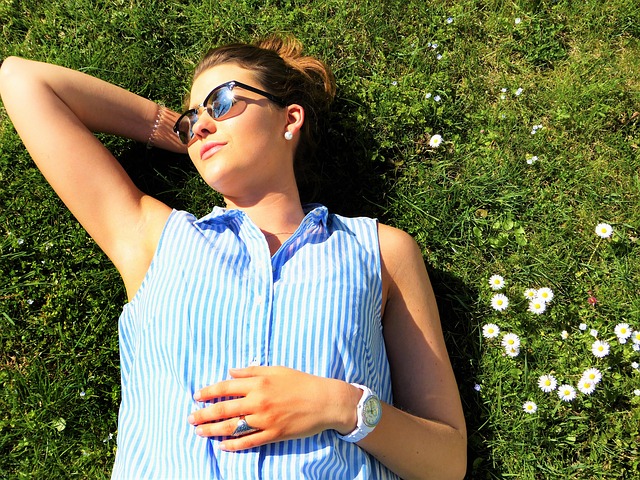
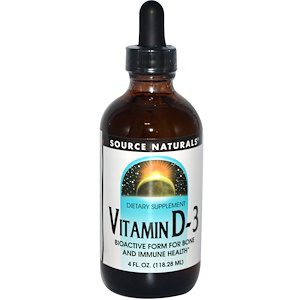
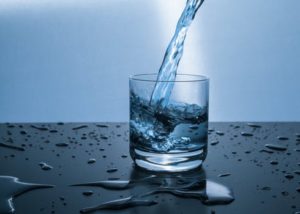
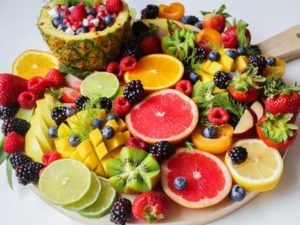 processed foods can also act as a toxic substance to the body. Changing to a diet free from refined and processed foods, higher in natural good fats & proteins means a higher natural level of antioxidants, meaning less free radicals and less damage to the skin. Incidentally, as I’ve aged even with long hours in the sun with endurance sport, I am less likely to get burnt by the sun now on a 6 hour bike ride, than I was in my 20’s playing a 2hr game of baseball.
processed foods can also act as a toxic substance to the body. Changing to a diet free from refined and processed foods, higher in natural good fats & proteins means a higher natural level of antioxidants, meaning less free radicals and less damage to the skin. Incidentally, as I’ve aged even with long hours in the sun with endurance sport, I am less likely to get burnt by the sun now on a 6 hour bike ride, than I was in my 20’s playing a 2hr game of baseball.
